== and ==
Bass Ivo Vinco
A Conversation with Bruce Duffie
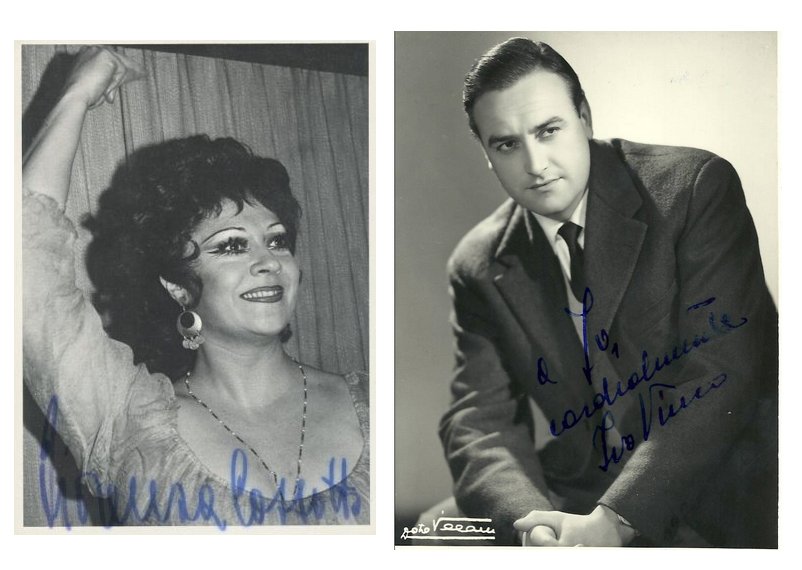

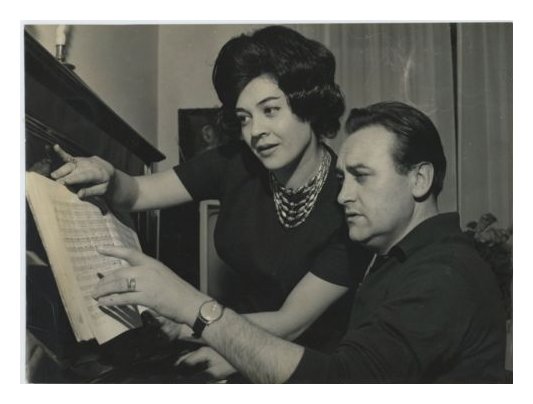 Born on April 22, 1936 in Crescentino, Province of
Vercelli, Italy, Fiorenza Cossotto attended the Turin Academy of Music
and graduated top of her class. After her studies with Mercedes
Llopart, she made her operatic debut as Sister Matilde in the world
premiere of Poulenc's Dialogues of
the Carmelites in 1957 at La Scala in Milan. Her international
debut was at the 1958 Wexford Festival as Giovanna Seymour in
Donizetti's Anna Bolena. Her
Covent Garden debut was in 1959 as Neris in Cherubini's Médée, with Maria
Callas in the title role. A 1962 performance of the lead in La favorita at La Scala led to
wider fame and she made her American debut in the same role in 1964 at
the Lyric Opera of Chicago and as Amneris at the Metropolitan Opera in
1968. Born on April 22, 1936 in Crescentino, Province of
Vercelli, Italy, Fiorenza Cossotto attended the Turin Academy of Music
and graduated top of her class. After her studies with Mercedes
Llopart, she made her operatic debut as Sister Matilde in the world
premiere of Poulenc's Dialogues of
the Carmelites in 1957 at La Scala in Milan. Her international
debut was at the 1958 Wexford Festival as Giovanna Seymour in
Donizetti's Anna Bolena. Her
Covent Garden debut was in 1959 as Neris in Cherubini's Médée, with Maria
Callas in the title role. A 1962 performance of the lead in La favorita at La Scala led to
wider fame and she made her American debut in the same role in 1964 at
the Lyric Opera of Chicago and as Amneris at the Metropolitan Opera in
1968.She was considered an expert in portrayals of major mezzo/contralto roles in mid-19th-century Italian opera; e.g. Favorita, Amneris, Azucena, Eboli, Preziosilla, Maddalena, Ulrica and Laura. She also essayed Carmen, Mozart's Cherubino, Urbain in Meyerbeer's Les Huguenots, Bellini's Romeo and Marfa in Khovantschina. In 2005 she celebrated her 70th birthday with a performance of Suor Angelica at the Théâtre Royal in Liège, Belgium. She was married to the Italian bass Ivo Vinco for over 40 years (ending in divorce). Their only child was a son, Roberto. *
* *
* *
* *
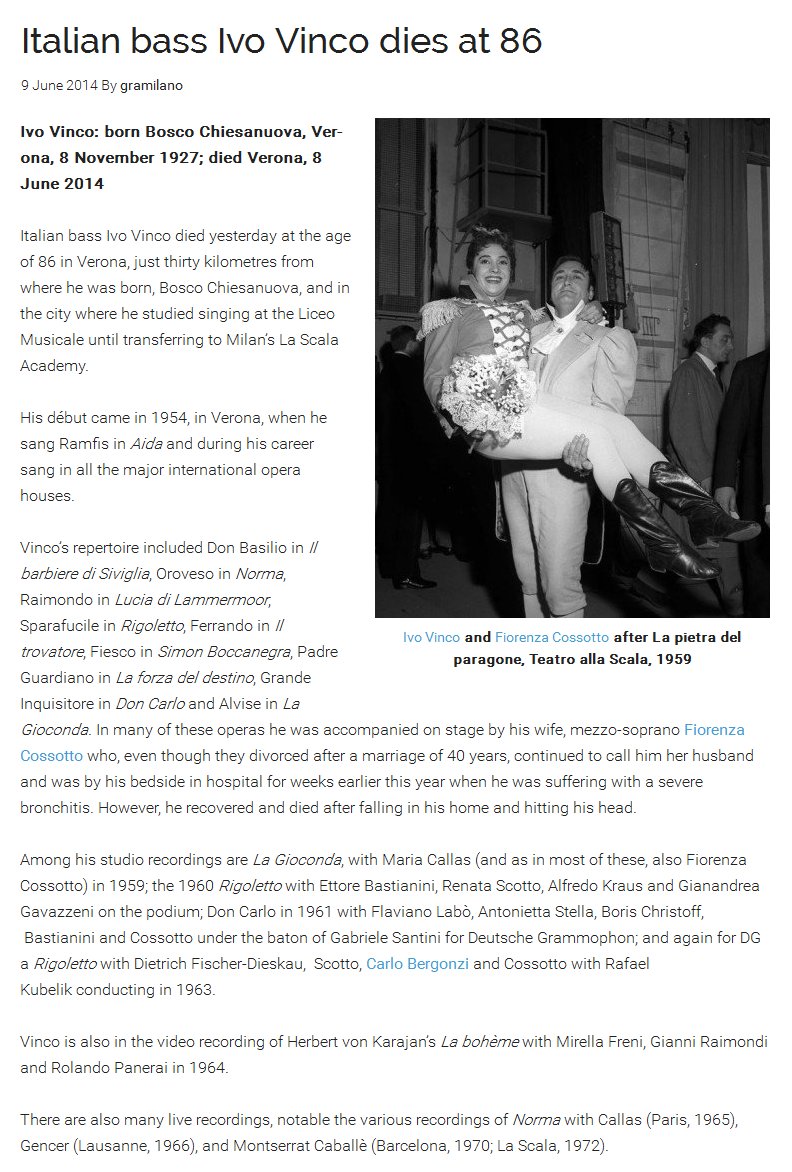 |
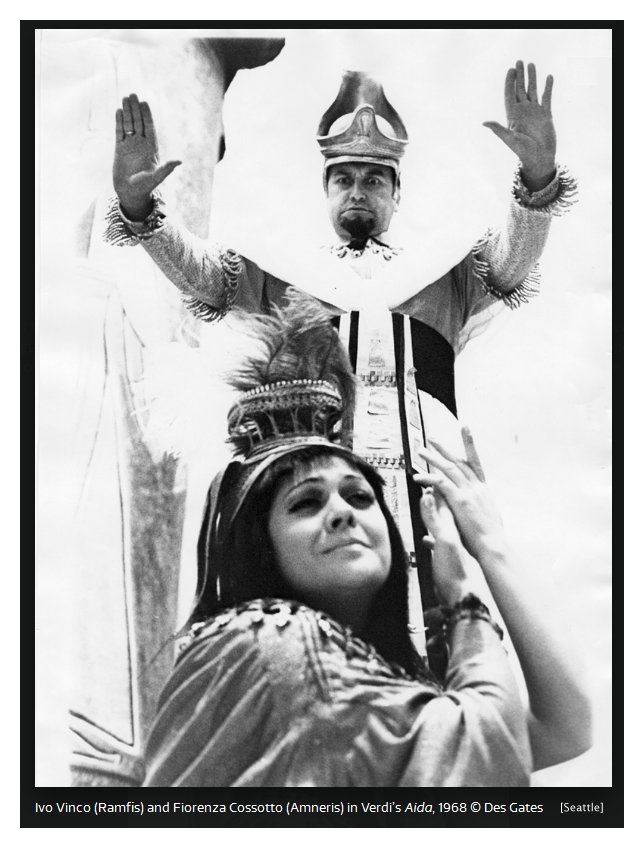 FC: However, it is
perfectly logical that the critic
has to judge what he sees. It makes perfect sense that the critic
has
only the final product to judge.
FC: However, it is
perfectly logical that the critic
has to judge what he sees. It makes perfect sense that the critic
has
only the final product to judge.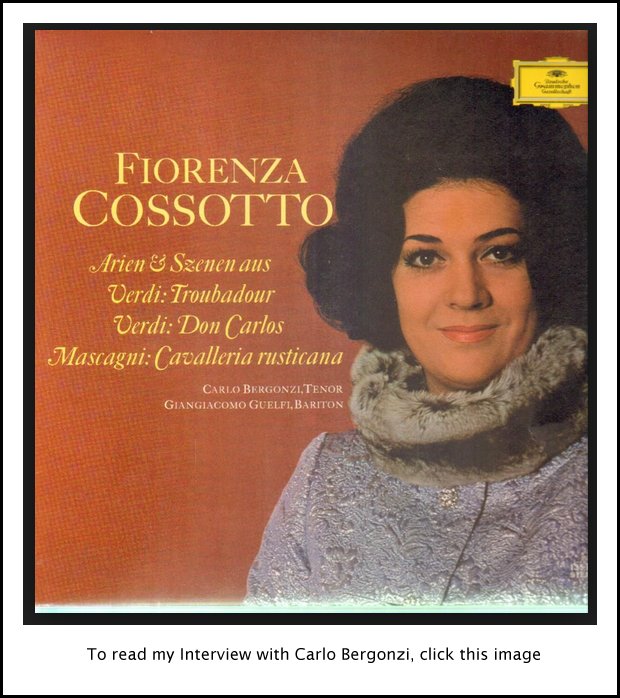 IV: Right, but
there are some operas. For instance, I
did
a concert opera in Moscow and it was a beautiful, great
success.
IV: Right, but
there are some operas. For instance, I
did
a concert opera in Moscow and it was a beautiful, great
success. 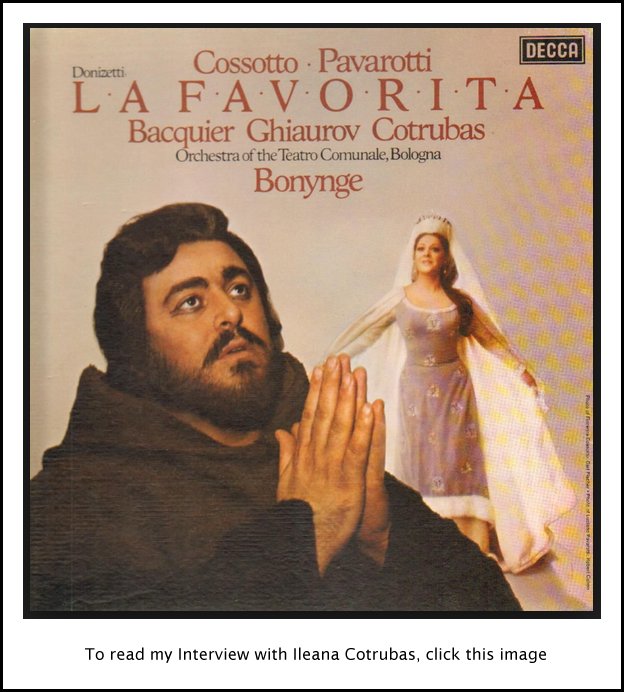 FC: It is
art and entertainment! [Everyone
laughs] The public is enthusiastic. There are many times in
which conditions are perfect, when I am doing a role I
like and I am perfectly comfortable with the
staging and the costuming and with the production itself. Then I
feel I have something joyful to communicate to others
and I transmit this joy. On a day when this is not the same, the
same
joy could not be communicated.
FC: It is
art and entertainment! [Everyone
laughs] The public is enthusiastic. There are many times in
which conditions are perfect, when I am doing a role I
like and I am perfectly comfortable with the
staging and the costuming and with the production itself. Then I
feel I have something joyful to communicate to others
and I transmit this joy. On a day when this is not the same, the
same
joy could not be communicated.Cossotto and Vinco at Lyric Opera of Chicago
1964 - [Opening Night] Trovatore (Vinco - American Debut) with Ligabue, Corelli, Zanasi, Bumbry; Bartoletti Favorita (Both - Her American Debut) with Kraus, Bruscantini; Cillario Don Carlo (Cossotto) with Gencer, Tucker, Gobbi, Ghiaurov, Marangoni, Michalski; Bartoletti 1965 - Aïda (Both) with Price/Lee, Lamberti, Bastianini/Colzani, Cillario Rigoletto (Vinco) with MacNeil/Bruscantini, Scotto, Kraus, Cassei; Bartoletti 1966 - Gioconda (Both) with Suliotis, Cioni, Guelfi, Zilio; Sanzogno 1968 - Norma (Both) with Suliotis, Cecchele; Sanzogno 1969 - Cavalleria Rusticana (Cossotto) with Tagliavini, Guelfi, Krebill, Garabedian-George; Bartoletti Barber of Seville (Vinco) with Horne, Bruscantini, Garaventa, Evans, Curry; Pritchard, Gobbi 1971 - Rigoletto (Vinco) with Cappuccilli, Robinson, Kraus, Zanibelli; Bartoletti Don Carlo (Cossotto) with Lorengar, Cossutta, Milnes, Ghiaurov, Sotin, Estes; Bartoletti, Mansouri 1974 - Favorita (Both) with Kraus, Cappuccilli, Zilio; Rescigno 1983 - [Opening Night] Aïda (Cossotto) with Tomowa-Sintow, Pavarotti/Giacomini, Wixell, Giaotti, Kavrakos, Negrini; Bartoletti, Tallchief 1986-87 - Ballo in Maschera (Both) with Chiara, Pavarotti/Sebastian, Cappuccilli, Blackwell, Kaasch; Bartoletti, Frisell, Conklin 1992-93 - Ballo in Maschera (Cossotto) with Voigt, Jóhannsson, Chernov, Blackwell; Buckley, Frisell, Conklin |
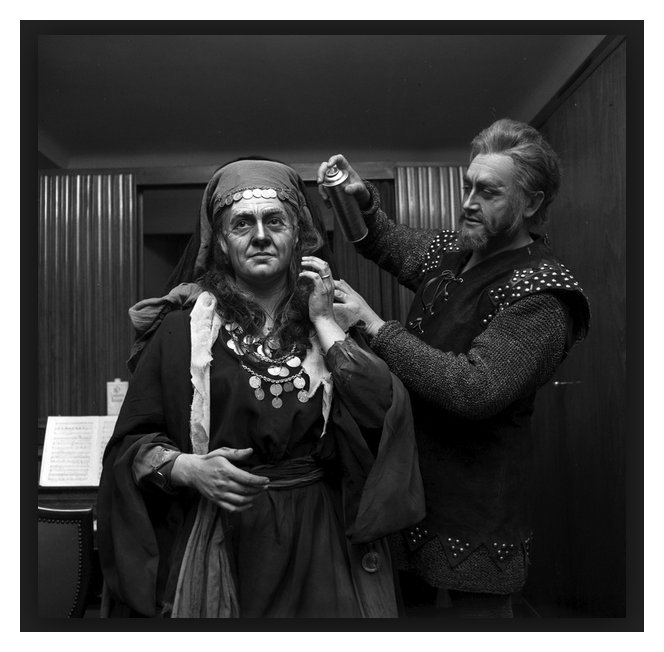 FC: ...because he
said he saw him with a knife standing
behind me wanting to kill me. After the performance, he asked
this gentleman who was carrying him on his
shoulders, “Is my mother really dead???”
He
was very, very upset, and he kept telling me on the way home, “You
didn’t see,
but he was hiding a knife!”
FC: ...because he
said he saw him with a knife standing
behind me wanting to kill me. After the performance, he asked
this gentleman who was carrying him on his
shoulders, “Is my mother really dead???”
He
was very, very upset, and he kept telling me on the way home, “You
didn’t see,
but he was hiding a knife!”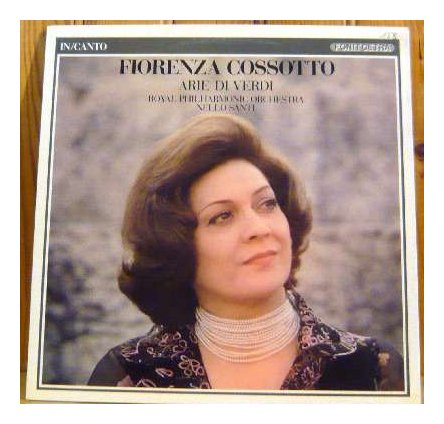 FC: But in
the Piccola Scala you sing small works where the
music is very soft!
FC: But in
the Piccola Scala you sing small works where the
music is very soft!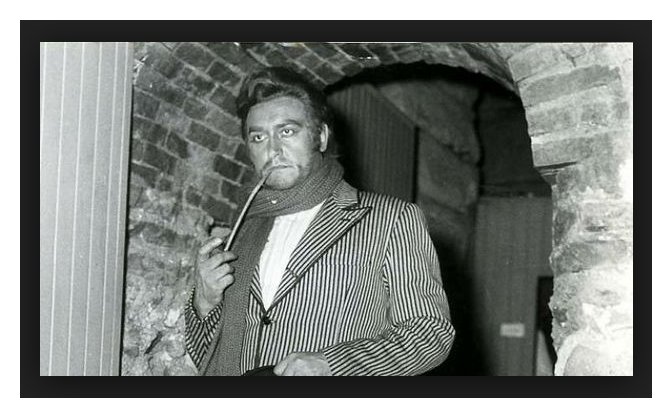 IV: Also Lady Macbeth of the Mtsensk.
It’s modern, it’s
contemporary but still we’re talking in Puccini’s time, and in this
time and this period composers
still wrote for the voice.
IV: Also Lady Macbeth of the Mtsensk.
It’s modern, it’s
contemporary but still we’re talking in Puccini’s time, and in this
time and this period composers
still wrote for the voice.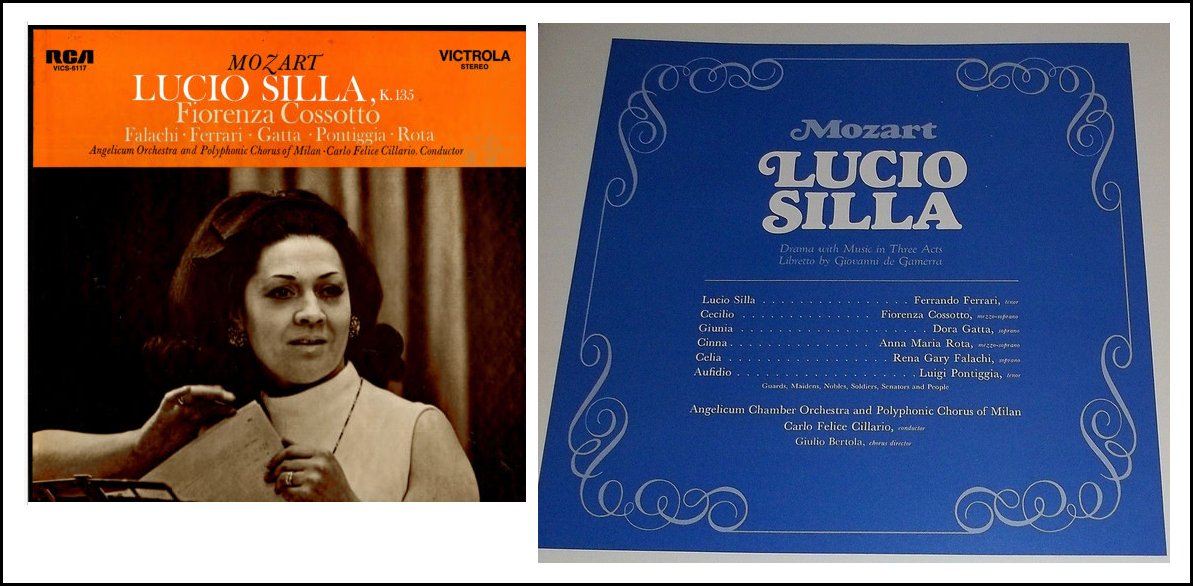
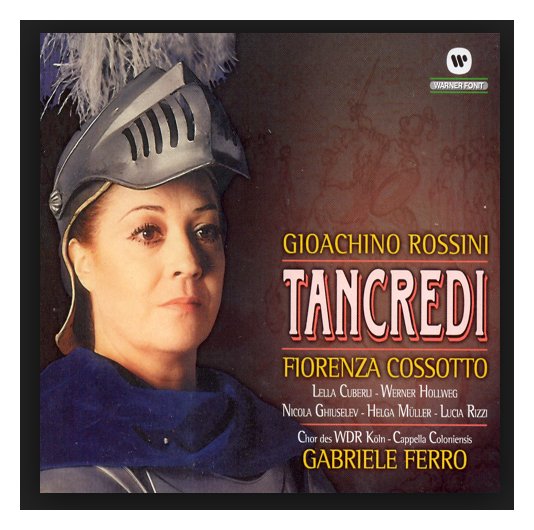 IV: And you have to
think of your career. It’s very
critical that you think of your career from your thirties to your
forties, rather than from your twenties to your
thirties. That’s the most important thing.
IV: And you have to
think of your career. It’s very
critical that you think of your career from your thirties to your
forties, rather than from your twenties to your
thirties. That’s the most important thing.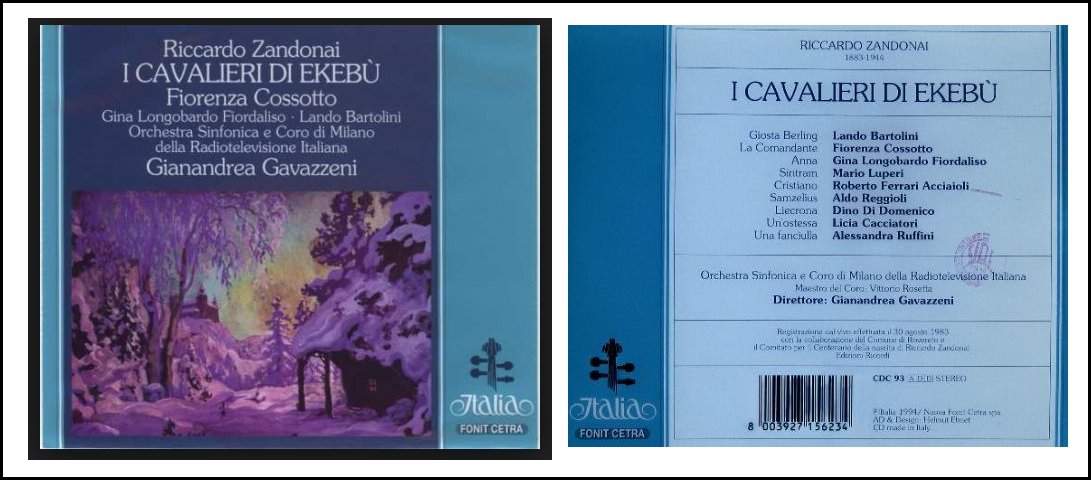
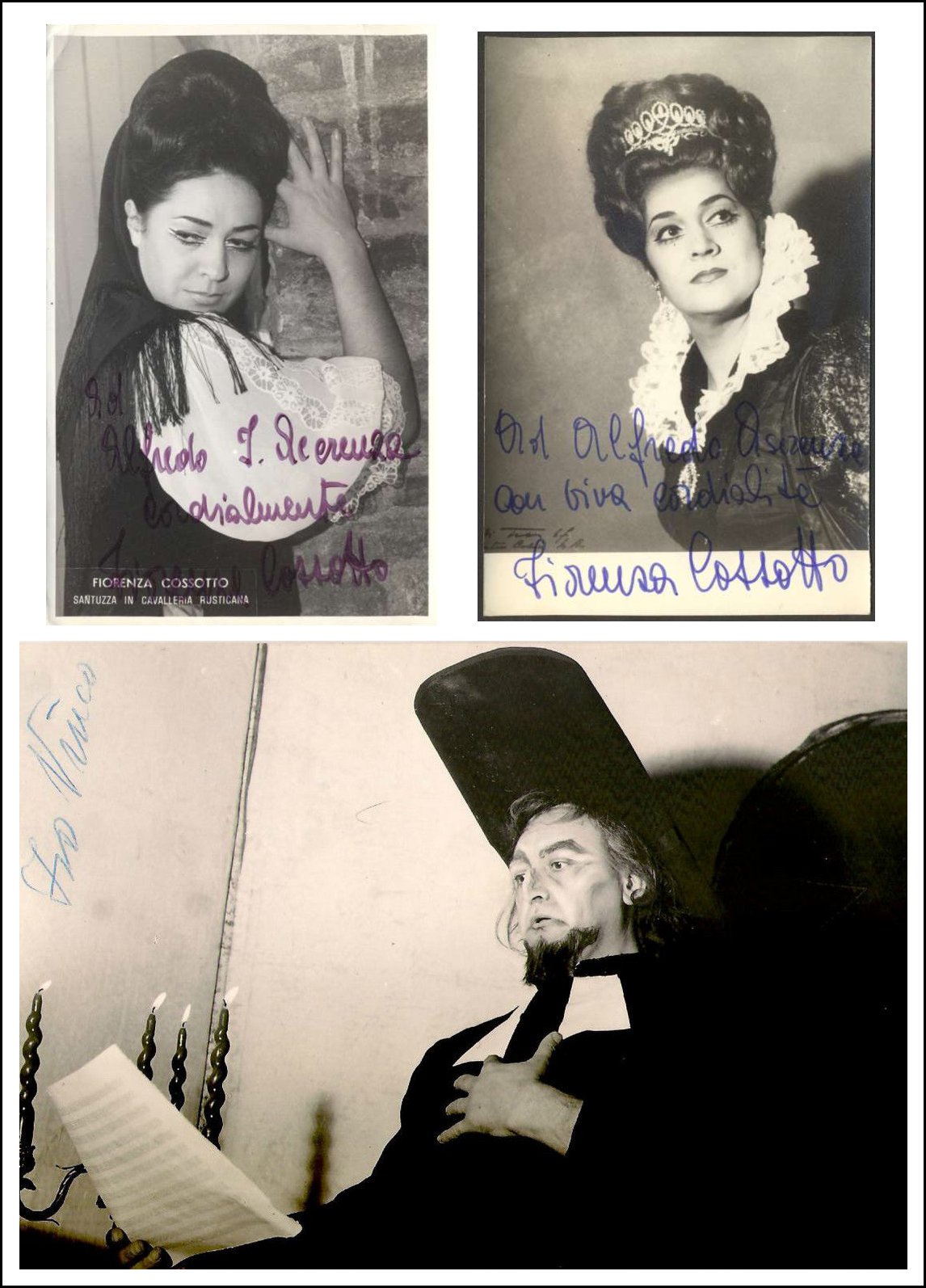
© 1983 Bruce Duffie
This conversation was recorded backstage at the Civic Opera House in Chicago on September 29, 1983. Portions were broadcast on WNIB 1995, 1997, and 2000. A portion was included in a brief article I wrote for the April 1985 issue of the WNIB Program Guide. My thanks for Marina Vecci for providing the translation during the conversation. This transcription was made in 2015, and posted on this website at that time. My thanks to British soprano Una Barry for her help in preparing this website presentation.
To see a full list (with links) of interviews which have been transcribed and posted on this website, click here.
Award - winning broadcaster Bruce Duffie was with WNIB, Classical 97 in Chicago from 1975 until its final moment as a classical station in February of 2001. His interviews have also appeared in various magazines and journals since 1980, and he now continues his broadcast series on WNUR-FM, as well as on Contemporary Classical Internet Radio.
You are invited to visit his website for more information about his work, including selected transcripts of other interviews, plus a full list of his guests. He would also like to call your attention to the photos and information about his grandfather, who was a pioneer in the automotive field more than a century ago. You may also send him E-Mail with comments, questions and suggestions.